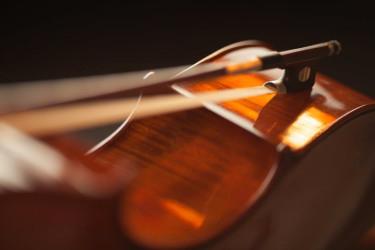
Robert Mapplethorpe’s photographs were at the center of an enormous controversy in the late ’80s and early ’90s, when the retrospective show called ‘The Perfect Moment’ was criticized for some of its more graphic imagery. Composer Bryce Dessner was a teenager living in Cincinnati at the time the Cincinnati Contemporary Arts Center was taken to court, ultimately winning against charges of obscenity. He pays tribute to the controversial photographer in a multimedia work called Triptych (Eyes of One on Another) coming to Cal Performances and Stanford Live.
There’s more information at the Cal Performances and Stanford Live websites.
“The obscenity trial, which began in Cincinnati with that exhibition, and all the controversy surrounding it, and the trial itself was a huge event in the city, and it was a kind of a big awakening for me, artistically and creatively, and culturally, politically,” Dessner says. With the story all over news coverage, he says he might have known about Picasso, but he knew about Mapplethorpe because of the uproar. “Obviously he’s very well known for certain images, and for his relationship with Patti Smith, and certain portraits and certain provocative images that people might know, but there’s many many images that I’ve discovered and come to love as well that I knew less before I began this project.” Dessner spent time in the Mapplethorpe archives, and he took inspiration from images he’d been assembling. He says a project this big involves a lot of collaborators. “It might bear my name as the composer, but our librettist, korde arrington tuttle, composed the words for the show inspired by Robert’s images, and also wove in text by the great poet Essex Hemphill and then Patti Smith. Writing for Roomful of Teeth is more like writing for the organ than it is writing for other singers. They’re really a lexicon of vocal styles, and they’re able to get so much… you can write four notes, and they can sing it 15 different ways… A piece that’s dealing with a lot of divisive issues, and confronting some really important subject matter about objectification and how we see one another, and to do that with a powerful group of singers, a diverse group of singers, has been really really very important.”







